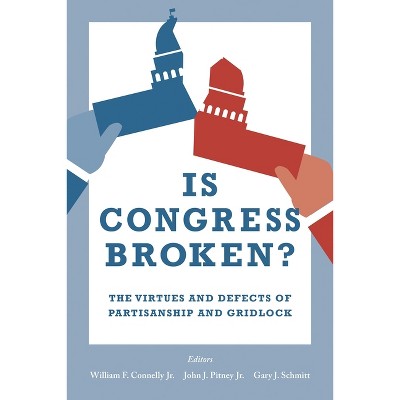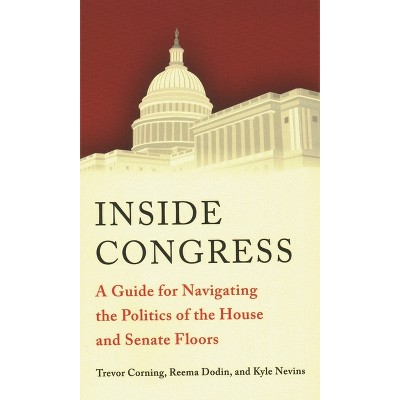About this item
Highlights
- "What's happened to the longstanding traditions of civility and decorum within the world's greatest deliberative body?
- About the Author: Burdett A. Loomis is professor of political science and program coordinator of the Robert J. Dole Institute for Public Service and Public Policy at the University of Kansas.
- 264 Pages
- Political Science, American Government
Description
About the Book
"What's happened to the longstanding traditions of civility and decorum within the world's greatest deliberative body? While the Senate hasn't yet become as rancorous as the House, over the past three decades it has grown noticeably less collegial. In ...
Book Synopsis
"What's happened to the longstanding traditions of civility and decorum within the world's greatest deliberative body? While the Senate hasn't yet become as rancorous as the House, over the past three decades it has grown noticeably less collegial. In Esteemed Colleagues, leading congressional scholars address the extent to which civility has declined in the U.S. Senate, and how that decline has affected our political system. The contributors analyze the relationships between Senators, shaped by high levels of both individualism and partisanship, and how these ties shape the deliberation of issues before the chamber. Civility and deliberation have changed in recent decades, up to and including the Clinton impeachment process, and the book sheds light on both the current American politics and the broad issues of representation, responsiveness, and capacity within our governmental institutions.
"Review Quotes
"All eleven essays offer insights into the operations of the contemporary Senate and provide material that will be useful to students and scholars alike.... The quality of the individual essays ensures that 'Esteemed Colleagues' makes a valuable contribution to the literature on Congress." --Christopher J. Bailey, Keele University, "The American Review of Politics", 11/1/2000
"'Esteemed Colleagues' makes an important contribution to the literature on Congress by examining understudied and underappreciated characteristics of the Senate. It is a book written for a general reading audience and would be an exemplary work to be assigned in an upper-division or graduate course on Congress and the American legislative process." --Patrick Fisher, Monmouth University, "Perspectives on Political Science", 6/1/2001
"Despite increasing individualism, declining trust, and rising partisanship, the contributors offer hope that the nature of the institution is such that it can still be the home of fruitful policy discussion and deliberation." --Larry S. Luton (ed.), "Public Administration Review", 8/1/2001
"Essays on how a decline in civility and an increase in partisanship have affected the deliberative and representative duties of the Senate." -- "The Chronicle of Higher Education", 1/12/2001
"Recommended for general readers, undergraduates, graduate students, researchers, and faculty." --P. Fisher, Monmouth University, "Choice, Vol. 38, No. 10", 6/1/2001
"This book's tone is neither cynical nor exasperated. Instead, it offers a realistic approach to understanding [the U.S. Senate]." --Ronald M. Peters, Jr., University of Oklahoma, "Journal of Politics", 11/1/2002
"This timely collection of essays from many of the leading scholars of the U.S. Senate provides some insight into how the evenly divided Senate of the 107th Congress is likely to conduct itself." --David Canon, "Congress and the Presidency", 4/1/2001
About the Author
Burdett A. Loomis is professor of political science and program coordinator of the Robert J. Dole Institute for Public Service and Public Policy at the University of Kansas. He is the author of "The Contemporary Congress" (St. Martins, 2000) and co-author of "Interest Group Politics "(CQ Press, 1998), now in its fifth edition, and "The Sound of Money: How Political Interests Get What They Want" (Norton, 1999).












